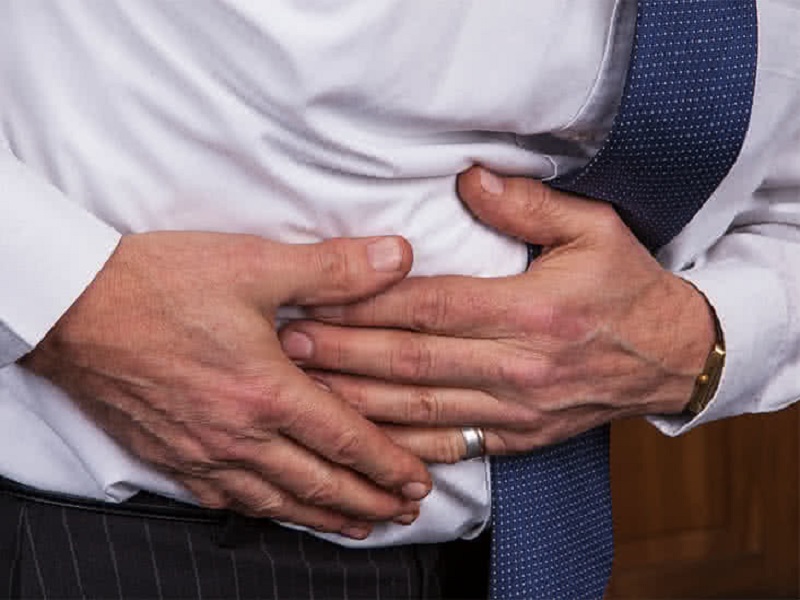
Acute gastroenteritis is an inflammation of the gastrointestinal tract due to infection or food poisoning. Acute gastroenteritis (AGE) is characterised by the presence of diarrhoea, colicky abdominal pain (cramps) and, sometimes, by the presence of fever and vomiting. The danger of acute gastroenteritis is that so many fluids and electrolytes are lost that dehydration occurs.
What are the causes of acute gastroenteritis?
Most gastroenteritis is caused by bacteria (salmonella, shigella, etc.), viruses (rotavirus) or toxins from bacteria (food poisoning). Gastroenteritis caused by toxins does not usually cause fever, while gastroenteritis caused by germs that attack the intestinal wall does usually cause fever. Germs or toxins are often present in food contaminated by poor handling or spoiled food.
What symptoms does the disease produce?
The most characteristic symptoms of acute gastroenteritis are:
- The presence of colicky abdominal pain (cramps).
- The presence of multiple soft or liquid stools (diarrhoea). In some cases, diarrhoea can be bloody.
- In addition, there is usually a fever, sometimes very high, nausea and vomiting.
- Fluid loss resulting from diarrhoea, vomiting, and fever can lead to dehydration, with a drop in blood pressure that often results in dizziness or loss of consciousness when getting up from a chair or bed. Bed.
- In susceptible people, especially the elderly, fluid loss can lead to secondary kidney failure and acute renal failure, which can be severe.
How is it diagnosed?
Most acute gastroenteritis requires no specific study and disappears in a few days with symptomatic treatment; however, they need medical evaluation and occasionally hospital admission in certain circumstances. These circumstances are:
- Gastroenteritis lasts over time (more than 48-72 hours without improvement).
- That is accompanied by blood in the stool.
- That produces a lot of affectation on the general state (fever, vomiting, dehydration).
- That affects a patient with a previous underlying disease (who has low defences, has received recent antibiotic treatment, etc.).
- That affects the elderly.
In all these cases, in addition to performing blood tests to determine if there is dehydration or impaired kidney function, a stool culture should be requested and, if there is suspicion, a search for parasites, viruses or bacterial toxins.
Acute gastroenteritis must be differentiated from other diseases also characterised by acute diarrhoea.
What is your prognosis?
Most gastroenteritis is self-limited; they disappear independently and do not require any specific treatment except to provide lost fluids (rehydration).
Persistent diarrhoea in children, the elderly, or people with other illnesses can lead to dehydration. An adult can also become dehydrated if, in addition to diarrhoea, they have vomiting that prevents them from drinking enough fluids. Dehydration can be recognised by a decrease in the elimination of urine or the number of times you urinate because the urine becomes thicker and darker and by the presence of intense thirst, dizziness, tiredness or fainting.
What is the treatment of acute gastroenteritis?
The treatment of acute gastroenteritis consists of a series of general measures and specific treatment if necessary.
General measures
- In acute gastroenteritis, the most important thing is to replace the fluid and electrolytes (salts, potassium, etc.) lost with diarrhoea. Drinking fluids do this replenishment. However, it may be necessary to replenish the fluids lost through the vein (inject fluids). IV fluids are required when diarrhoea appears in a very young child, in an older person who cannot drink adequately or who cannot drink at the same rate as he loses fluids, or when diarrhoea is accompanied by vomiting that makes everything that is taken by mouth is poured immediately. In other circumstances, hydration by mouth is usually worth it. To replenish fluid and electrolytes, you can prepare lemon water (alkaline lemonade: 1 litre of mineral or boiled water + the juice of 2 or 3 lemons + a teaspoon of salt + a teaspoon of bicarbonate if there is + sweeten to taste with sugar), give ready-made sachets to mix with water (sueroral) or drink isotonic (gatorade, acuarius or similar). In general, it is recommended that all these drinks be taken at room temperature since if they are freezing, they can increase cramps. Also, they should be taken little by little to avoid vomiting, ideally in small sips or spoonfuls. In general, it is recommended that all these drinks be taken at room temperature since if they are freezing, they can increase cramps. Also, they should be taken little by little to avoid vomiting, ideally in small sips or spoonfuls. It would help if you drank as much fluid as you need not feel thirsty, at least a couple of litres a day. In general, it is recommended that all these drinks be taken at room temperature since if they are freezing, they can increase cramps. Also, they should be taken little by little to avoid vomiting, ideally in small sips or spoonfuls.
- At the beginning of diarrhoea, when it is intense, the patient should be on an absolute diet, except for administering the liquids above. Most adults can be on a diet for 24 to 48 hours if they have no associated illnesses. Subsequently, an astringent diet (rice, boiled chicken, white fish, grated apple) should be slowly started and maintained until diarrhoea disappears or even 24 hours more.
- Diarrhoea medicines (astringents) such as loperamide may be helpful in mild diarrhoea cases where there is no fever or blood in the stool. They should not be given in cases of fever or blood in the stool since they can worsen or delay the healing of infectious diarrhoea.
- If diarrhoea is accompanied by fever, a medicine should be administered to lower it, for example, paracetamol. If there is abdominal pain, an analgesic (paracetamol, nolotil, Buscapina compositum) may be required. If diarrhoea is accompanied by nausea or vomiting, a drug to prevent vomiting (primperan or Motilium) may be needed.
Specific measures
Antibiotics are only given if:
- There is a significant affectation on the general condition (high fever or the person is very ill).
- The patient has a previous severe illness (diabetes, cirrhosis, chronic kidney failure, chronic heart failure) or one that lowers their defences (immunocompromised).
- There is the emission of blood along with the stool.
- The patient has artificial heart valves.
- A patient is an elderly man.
When should you go to the Emergency Department for acute gastroenteritis?
You should go to the emergency room if:
- Diarrhoea is significant and affects children, the elderly, or people with serious illnesses (diabetes, cirrhosis, chronic kidney failure, chronic heart failure) or who have low defences.
- If it is accompanied by a high fever and a lot of general malaise.
- If the emission of red blood accompanies it along with the stools.
- If it is accompanied by continuous vomiting, that causes the patient to throw out everything they drink and, therefore, they can become dehydrated.






